Restoration through cohesion: how international partners are helping Ukraine
On April 16, a panel discussion “International and national experience in reconstruction and attracting investments” was held as part of the “International Cohesion Forum – Creating the Future”.
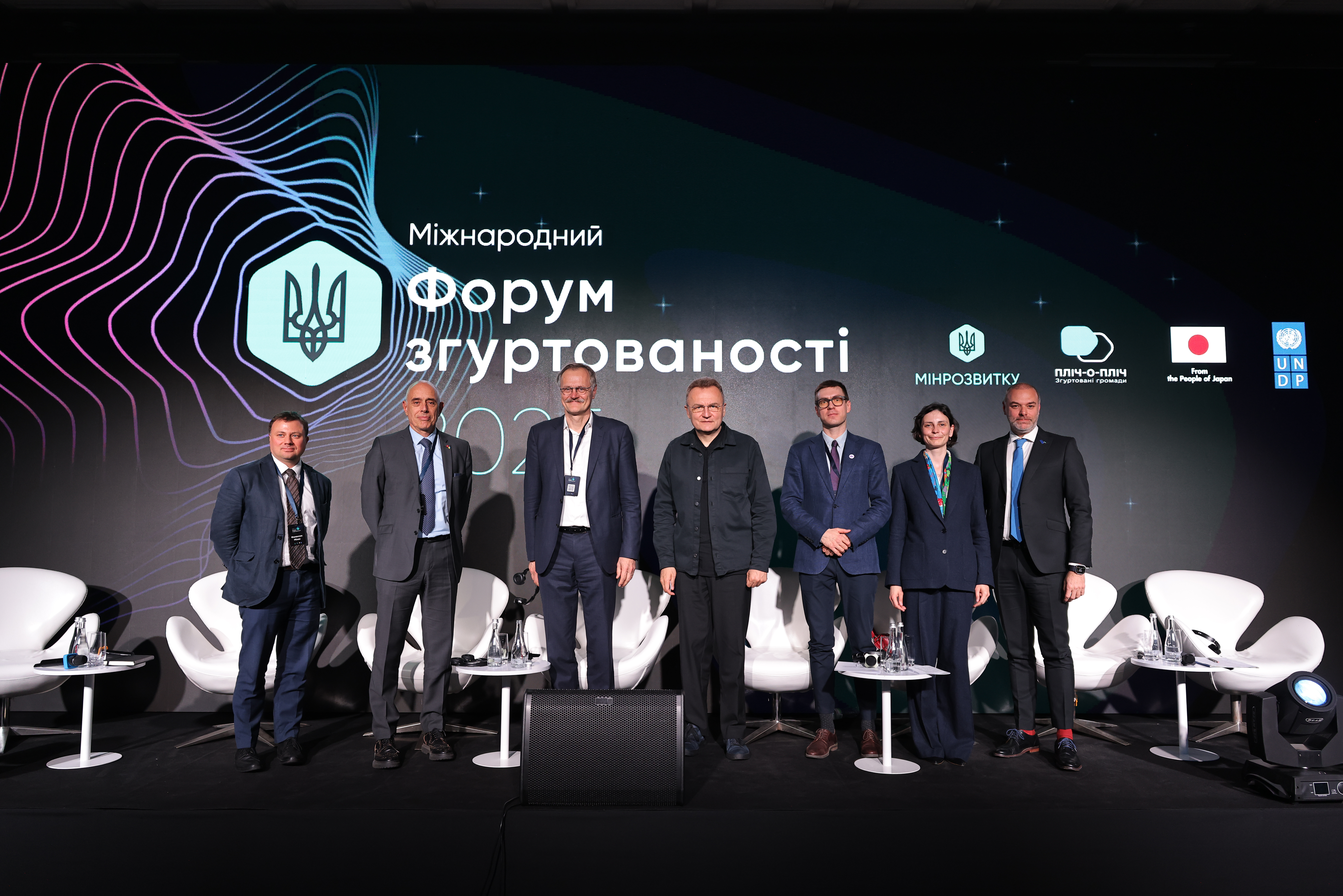
During the discussion, the participants considered the issues of international cooperation, involving the experience of foreign countries in reconstruction, and also got acquainted with practical steps that are already being implemented in Ukraine.
An important element in the reconstruction of Ukraine is the implementation of reforms, according to the Head of the OECD Liaison Office for Ukraine, Michal Falenczyk.
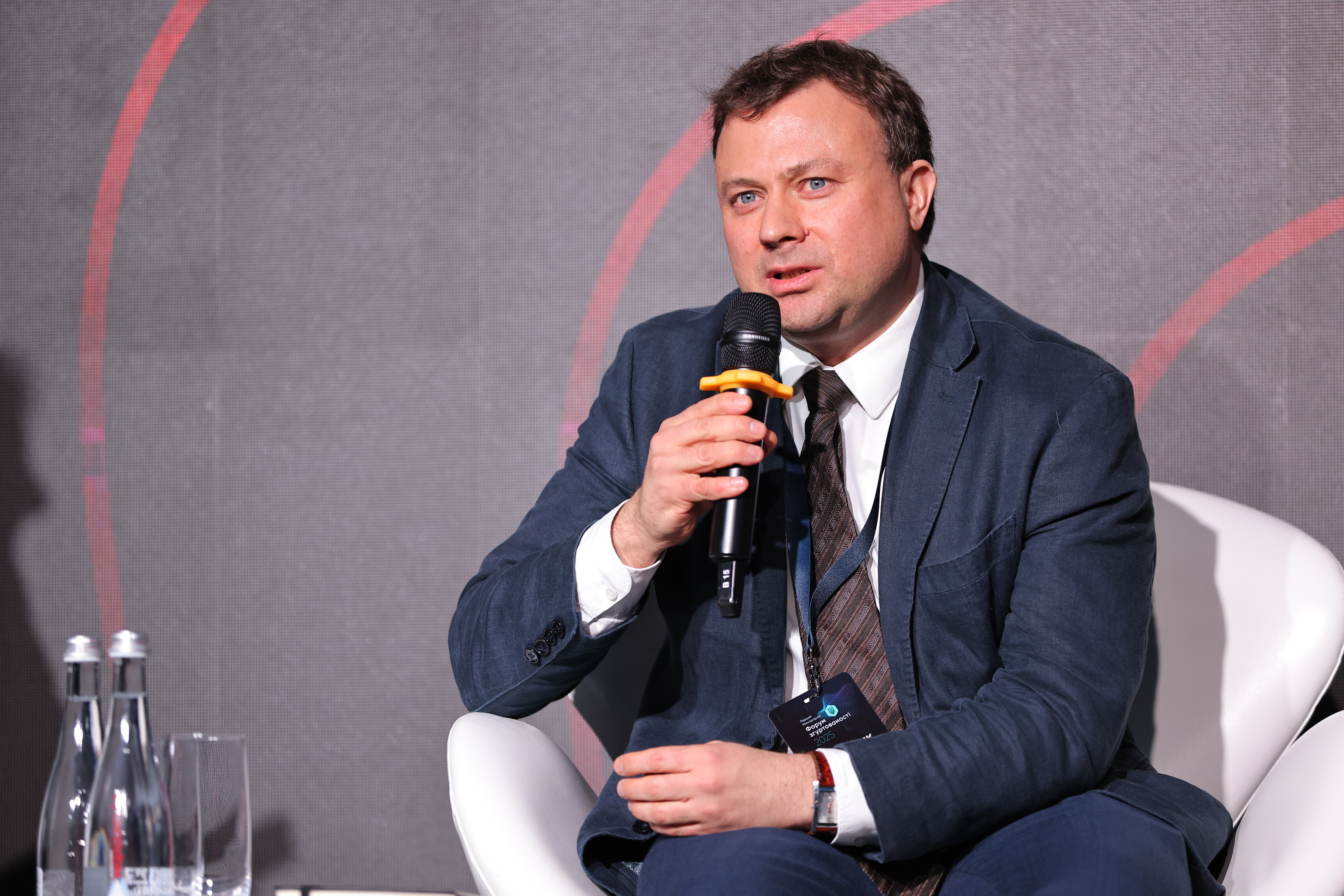
“Despite the difficult conditions, we must move forward with reforms. And this is precisely why our organization has been working with the Government of Ukraine since 2023 within the framework of a four-year reform support program. It is very extensive, but I would like to draw attention to two points: support for regional development and investment policy. And for us, it is extremely important that reforms are not the main goal. It is also worth assessing the effects that these reforms provide. And if the Government sees that the reforms are not fully meeting expectations, then it will be possible to understand the reasons,” emphasized Michal Falenczyk.
Director of the Cooperation Program of the Embassy of Switzerland in Ukraine Jean-Luc Bernasconi also emphasized the importance of long-term planning in the process of international cooperation.
“In 2022, I had the opportunity to lead a humanitarian aid mission to Ukraine. And one of its tasks was to make the connection more long-term. This requires energy, but it is very important. And this long-termity concerns not only intentions, but also the organization of processes and financial capabilities. For example, when we provided equipment for the water utility in Kharkiv to provide electricity, we immediately started thinking: “How to have more efficient use of energy even after providing this assistance?” I am sure that this process is possible and it is definitely important,” says Jean-Luc Bernasconi.
Rebuilding after devastating events is a challenge that different countries face. In Ukraine, it is the consequences of a full-scale war, in Japan, natural disasters.
Kenichiro Tachi, Director of International Development and Infrastructure Engineering at the Ministry of Land, Infrastructure, Transport and Tourism of Japan, shared his experience of reconstruction in Japan. He also drew attention to the fact that the reconstruction of Ukraine has a very important element - the invincibility and unity of all citizens.
“I was in Ukraine last March and witnessed how the Ukrainian economy is developing, innovations. And I also saw the resilience of people who are trying to continue their daily lives. Although they are in very difficult conditions. Therefore, this strength and resilience brings international support and investment to Ukraine. Now we are also trying to involve the private sector of Japan in the construction process in Ukraine. Our Ministry even has a Jupiter platform,” Kenichiro Tachi shared his experience.
New initiatives are also being launched in Ukraine. For example, the Belgian State Development Agency Enabel. Dirk Despres, Director of Enabel in Ukraine, noted that the agency has only been operating since July last year. And, despite the concerns about the development of initiatives in Ukraine, there are already successful examples. Among them is a four-year program to support the restoration of communities.
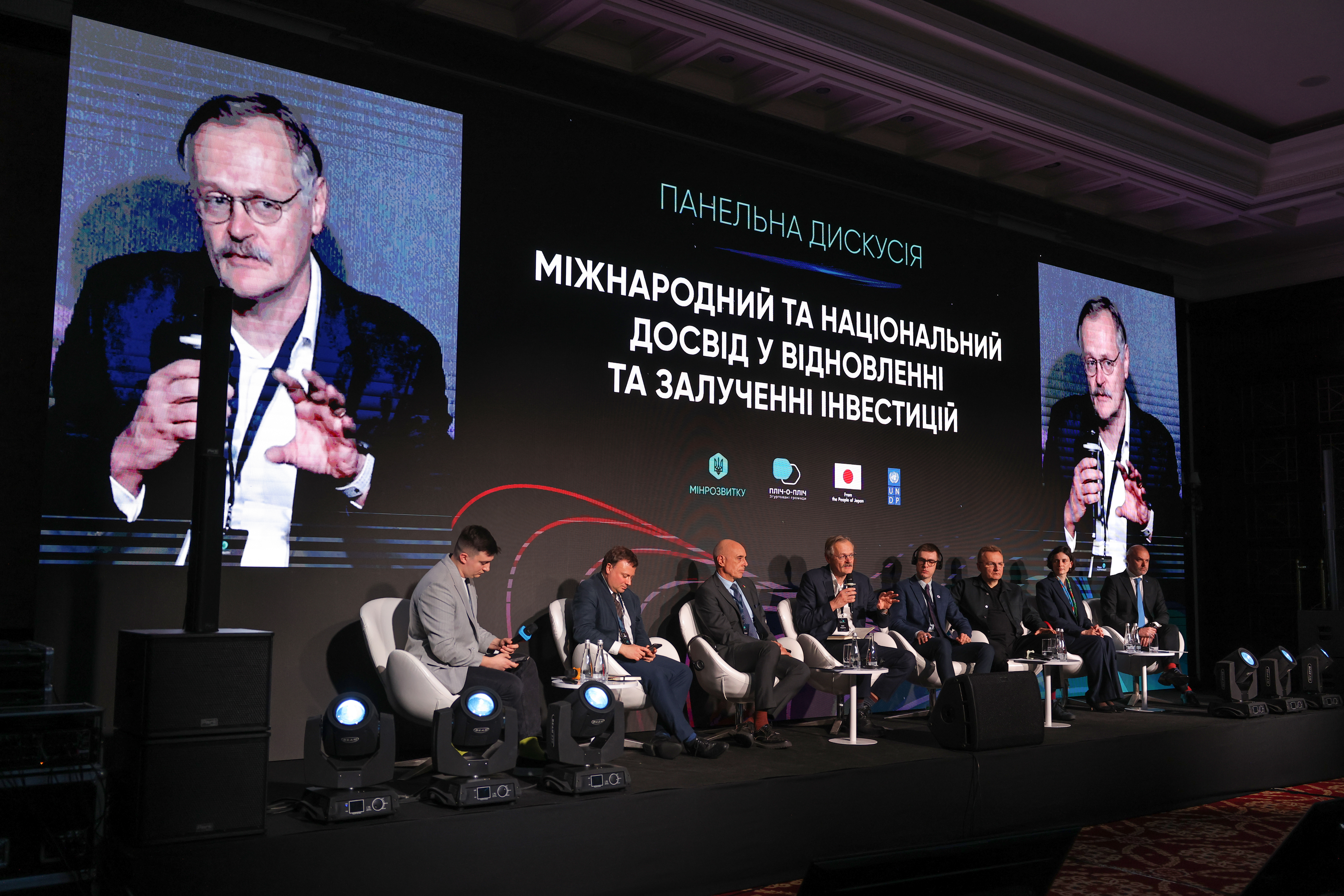
“Some people told me that all initiatives are quite possible, especially in a country where war is ongoing. And everything happened. In particular, because Ukraine has many tools, there are many resources. Now we have managed to allocate 20 million for construction, generators and support for heating systems. However, there is another important point - communication with stakeholders at the national, regional and local levels. And this is what we will definitely do,” Dirk Depres emphasized.
International partners are also ready to provide significant assistance in the field of expert support. Marcin Chruscziel, Director of the Polish-Ukrainian Development Office of the Ministry of Development Funds and Regional Policy of the Republic of Poland, noted that Poland is ready to share its experience in the real management of the European Union's cohesion policy. This will help in the process of Ukraine's European integration.
“Ukraine is working well to achieve the goal of joining the EU. And the Polish presidency of the Council of Europe also supports this process. We want Ukraine to become a member of the EU. Of course, this requires quite tough negotiations, because Ukraine is a large country with huge markets. And the cohesion policy is one of the most important tools for us in this process, which will bring many positive developments for Ukraine as a member of the EU,” emphasized Marcin Chruscziel.
Lviv Mayor Andriy Sadovyi spoke about successful practices of cooperation between communities and international partners. Currently, the city is implementing a number of projects on military rehabilitation, support for IDPs, medicine, transport and accessibility.
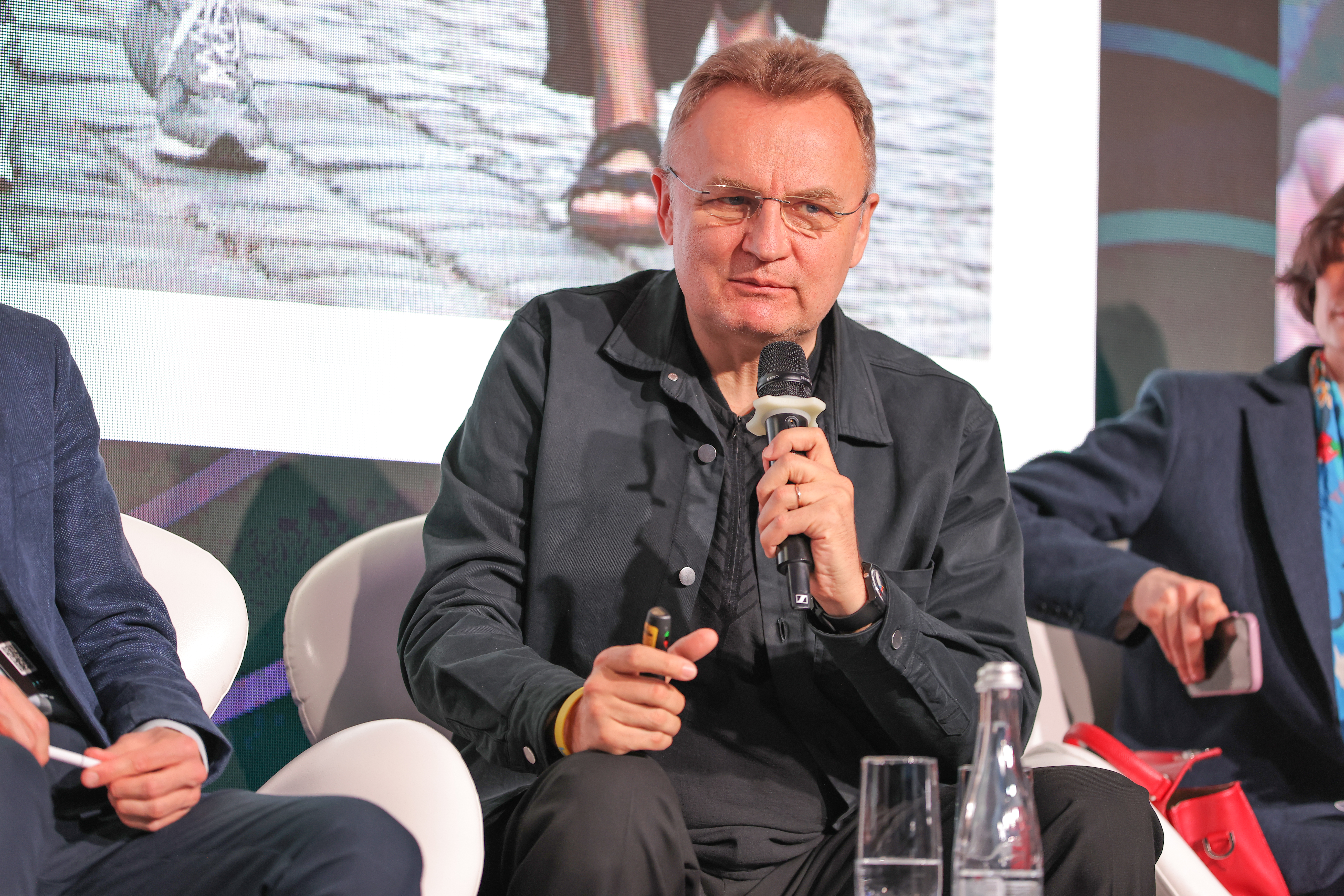
“In cooperation with international colleagues, keeping our word is a matter of principle. Because sometimes they may not understand how we talked about one thing, and it turned out to be completely different. Therefore, it is very important to find solutions together and implement them competently. We already have clear points for the development of Lviv: support for veterans, education, culture, international cooperation and quality governance. And, together with partners from the UK, Germany, Poland and many other countries, we are making sure that our projects become real,” Andriy Sadovyi emphasized.
According to Mariana Semenyshyn, Deputy Head of the Sustainable Development Unit of the U-LEAD with Europe Program, an important element of reconstruction in Ukraine is the involvement of communities.
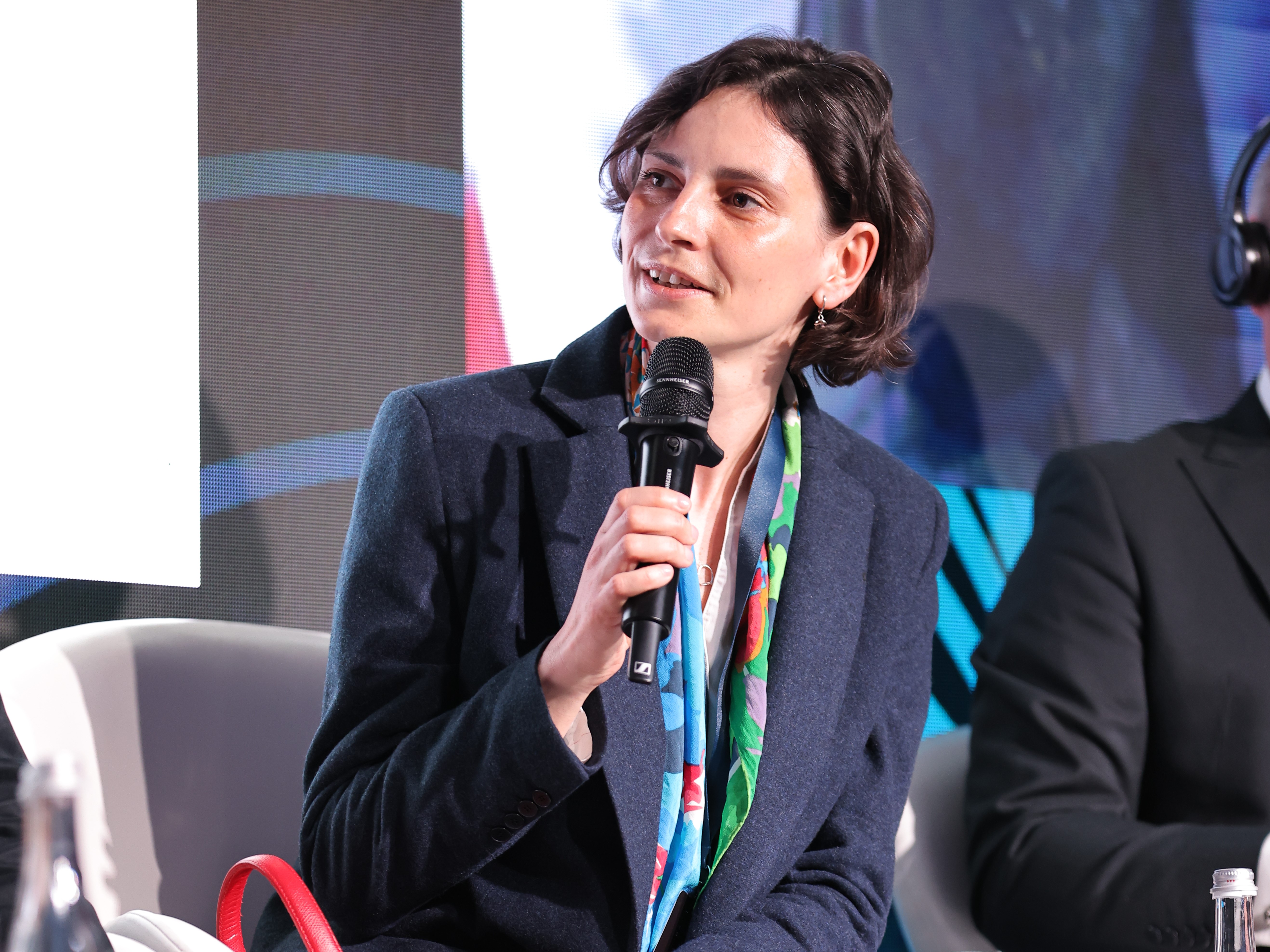
“Only strong people can delegate authority in times of war. And only brave leaders pick up this baton on the ground. To support such people, U-LEAD has introduced the first municipal project preparation tool in Ukraine. Since 2022, the Program has helped 20 Ukrainian communities prepare 25 reconstruction projects for almost 150 million euros. But there is a need not only for reconstruction, but also for parallel changes and reforms that are part of Ukraine’s European integration path. Therefore, I sincerely advise communities not to be afraid to prepare comprehensive reconstruction projects, form multi-sectoral teams, and invest in the education of officials at the local level. This will allow communities to be capable of reconstruction and development,” emphasized Mariana Semenyshyn.
According to the Deputy Resident Representative of UNDP in Ukraine, Christophoros Politis, sustainable recovery will be much more successful if communities are strong and resilient.
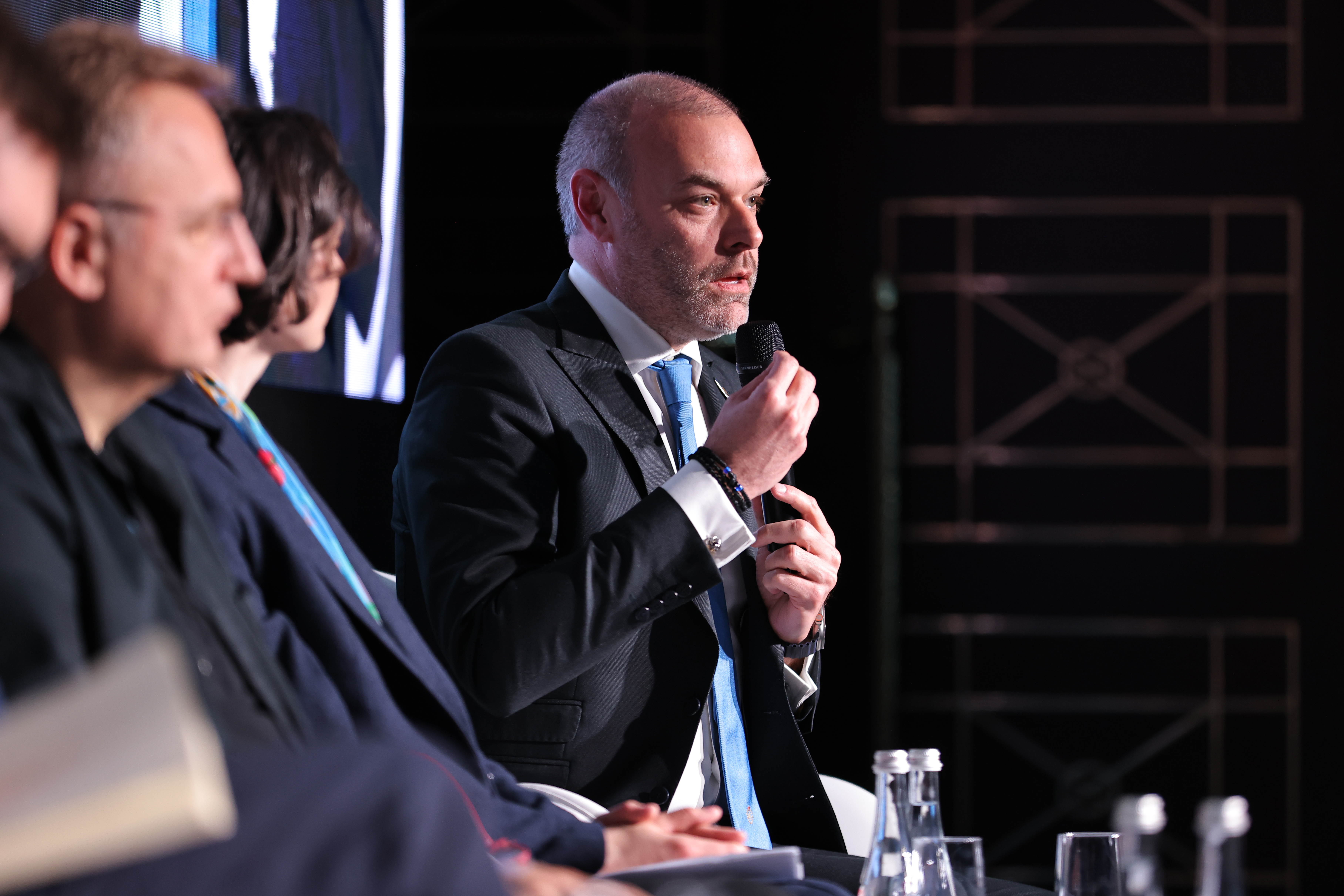
“At UNDP, we support Ukrainian municipalities in building their capacity for strategic planning, transparent investment management and effective interaction with partners. Through training programs, digital tools and the development of inter-municipal cooperation, we help communities become active participants in the recovery and development processes. Democratic governance, based on transparency, accountability and citizen participation, is key to the effective use of resources and forms the basis of trust both within the country and among international partners,” stressed Christophoros Politis.
The event was organized by the Ministry for Development of Communitirs and Territories of Ukraine jointly with the United Nations Development Programme (UNDP), with financial support from the Government of Japan.
Subscribe to the pages of the Ministry for Development of Communities and Territories of Ukraine on Facebook, Twitter, Telegram, and WhatsApp